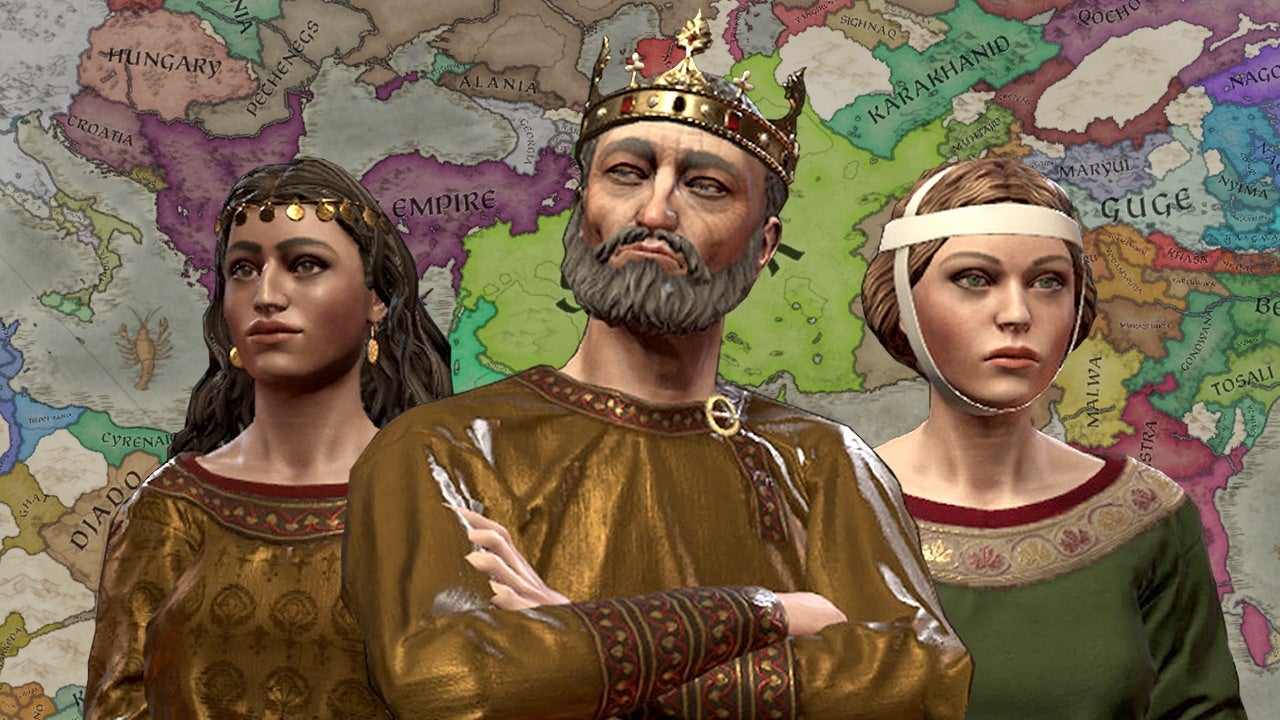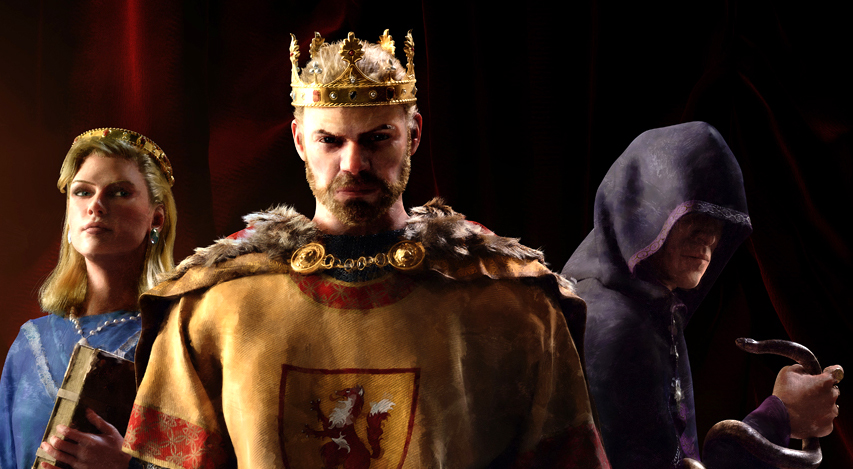
Religion is one of the biggest areas that's been revamped in the latest iteration of Paradox's grand strategy series. With this CK3 religion guide, you can be inspired as if on high through its various nuances and complexities.
Do you want to preach to the outlanders, make peace with your heretical neighbors, or perhaps invent your very own cult? No matter what appeals to you, have faith that this breakdown of everything you need to know about religion in Crusader Kings 3 will give you the enlightenment you need.
How to reform and create religion in CK3
One of the coolest new features in Crusader Kings 3 is the ability to create a custom heresy of your parent religion (or reform into an organized faith if you’re starting as a tribal pagan). The thing is, this costs a lot of Piety—more than you can realistically expect to earn in a single character’s lifetime unless you're really trying.
If that's you, first pick up the Prophet perk from the Theologian tree in the Learning lifestyle. This cuts the Piety cost of creating a new faith in half, which makes it far more realistically attainable. You should also keep the Theology character focus active for the additional monthly piety.
You can squeeze out even more by marrying someone with a high Learning stat and setting them to the Patronage spouse job, and by making sure your realm priest has a very high Learning stat if you belong to a religion that allows you to appoint one yourself. Building lots of temples also helps. Your own character’s Learning stat will affect not just how much Piety you get per month, but also how likely your vassals are to convert to the new faith after you found it. That’s key, because if not enough of them are convinced, you may have a sectarian civil war on your hands.
How different religious groups view each other
Every faith in Crusader Kings 3 views every other faith in the world one of four ways:
- Righteous: In sync with your own. For example, there are multiple schools of Sunni Islam, but as long as everyone in the room is Sunni, they should get along fine.
- Astray: Faiths that are similar to yours, but not exactly considered to be heretical. This is the relationship between Catholic and Eastern Orthodox Christianity—there will be some friction between them, but not loads.
- Hostile: Faiths that are in your religious group, but are seen by you as heretical or dangerous. This includes how Catholics see Christian heresies like Catharism, the relationship between different pagan traditions, and the conflict between Sunni and Shia Islam. While followers of these faiths can still marry, they have significant mutual opinion penalties, can declare holy wars against each other, and will be valid targets against which you'll need to seek the aid of Holy Orders like the Knights Templar and the Assassins.
- Evil: One step beyond Hostile, including differences as wide as Christianity versus Islam, with no intermarriage allowed. It would carry such a large opinion penalty that it’s very difficult for groups that view each other as Evil to ever coexist.
Each step in the intolerant direction will give you an increasing opinion penalty with other rulers of that faith, and increase the amount of unrest in counties where the people follow it. So, keep a close eye on how your neighbors view your religion, and be careful when converting to a heresy that will be seen as Hostile to any nearby rivals. In general, the Dharmic religions of the East like Hinduism and Buddhism are the most tolerant, while the Abrahamic religions of the West like Christianity and Islam are the least tolerant.
Keep up to date with the most important stories and the best deals, as picked by the PC Gamer team.
How Holy Sites work

CK3 guide: Beginner tips to get you started
CK3 console commands: All the cheats you need
CK3 Intrigue: Become a master of the dark arts
CK3 war: Vanquish your enemies
CK3 mods: From tweaks to total conversions
Every religion in Crusader Kings 3 has a handful of Holy Sites, generally in places that were historically significant for its founding or worship. Jerusalem is the big one, as it’s shared between all Muslim, Christian, and Jewish faiths, but only one can control it at a time. Each Holy Site you control unlocks bonuses for every ruler who follows your religion, such as bonus stat points, increased taxes, or extra combat power for your knights. You will also need to hold at least three of them to reform your religion if you start as a pagan.
Faiths that have Great Holy Wars, such as Christian Crusades or Muslim Jihads, are likely to fight tooth and nail to secure these sites. Unlike Crusader Kings 2, though, holding all of your Holy Sites doesn’t necessarily make your faith more appealing. In fact, losing them can increase a faith’s Fervor, as the believers are fired up and motivated to win it back. If you create a new heresy of an existing religion, your holy sites will be the same as theirs, making it clear that there’s only room enough for one 'true' confession in the region.

Master CK3 religion tenets to manipulate your people
Crusader Kings 2 had the Seven Deadly Sins and the Seven Heavenly Virtues, which were entirely based on medieval Christianity. In Crusader Kings 3, each faith has its own list of virtues and sins that are based on its tenets, which can even be changed in the creation of a new heresy. For example, Catholics believe vengeful characters are sinners and forgiving ones are virtuous. But Asatru (Norse paganism) believes the exact reverse, exalting those who avenge every slight and look down on those who turn the other cheek. Thus, no trait is seen as inherently good or bad; it all depends on what your faith teaches.
It’s even possible to create some really wacky variations. If you create a heresy with the Sacred Lies tenet, for instance, deceitful characters will be viewed as upstanding and honest ones will be defying the will of the gods. It’s even possible to make cannibalism desirable. Yes, really.
Len Hafer is a freelancer and lifelong PC gamer with a specialty in strategy, RPGs, horror, and survival games. A chance encounter with Warcraft 2: Tides of Darkness changed her life forever. Today, her favorites include the grand strategy games from Paradox Interactive like Crusader Kings and Europa Universalis, and thought-provoking, story-rich RPGs like Persona 5 and Disco Elysium. She also loves history, hiking in the mountains of Colorado, and heavy metal music.

